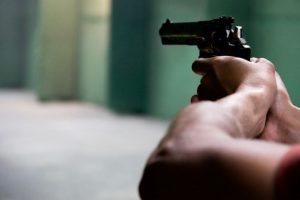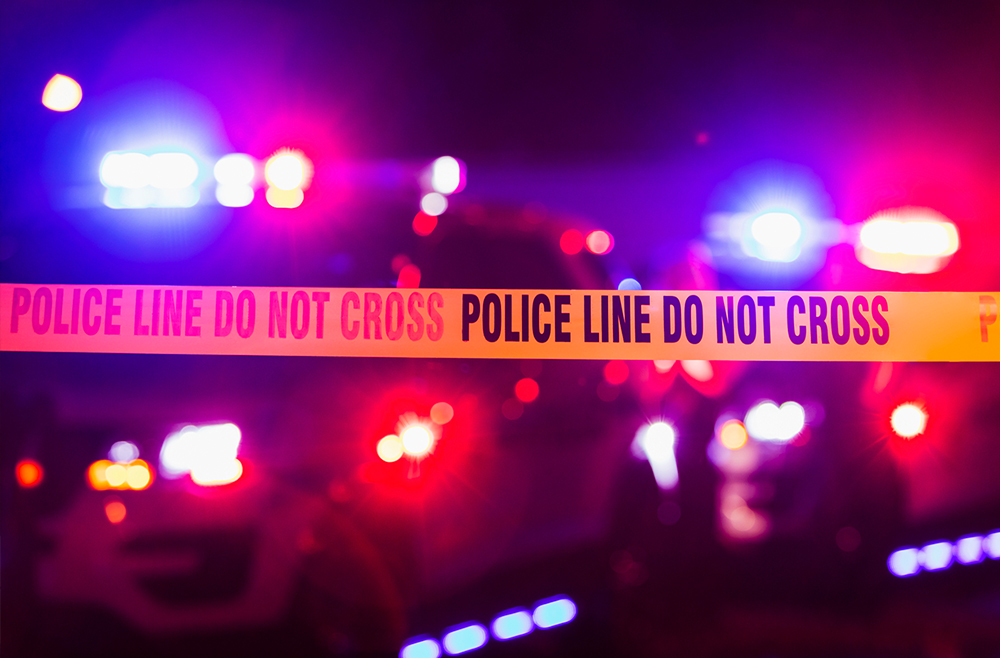 The elephant in the room continues to be ignored. Recent shootings by law enforcement have been roundly criticized and improperly analyzed by the detractors. Much of the reproach comes when biased and non-objective individuals view a shooting which is captured on video. The knee-jerk response is that the police officer was not in danger at the point in which they fired their weapon. They complain that the offender was moving away from the officer and therefore the officer was not in any danger when they fired the shots. Therefore, the shooting was not justified. The attackers fail to acknowledge that the images on the screen, viewed from the comfort of their living rooms, are not the same as that experienced by the officer at the time of the shooting. The video depicts two-dimensional images rarely from the perspective of the officer. Moreover, the video does not account for actions which occurred before the video yet known to the officer. Often a time there is no sound and it never accounts for the physiological changes experienced by the officer in a rapidly evolving, highly intense situation.
The elephant in the room continues to be ignored. Recent shootings by law enforcement have been roundly criticized and improperly analyzed by the detractors. Much of the reproach comes when biased and non-objective individuals view a shooting which is captured on video. The knee-jerk response is that the police officer was not in danger at the point in which they fired their weapon. They complain that the offender was moving away from the officer and therefore the officer was not in any danger when they fired the shots. Therefore, the shooting was not justified. The attackers fail to acknowledge that the images on the screen, viewed from the comfort of their living rooms, are not the same as that experienced by the officer at the time of the shooting. The video depicts two-dimensional images rarely from the perspective of the officer. Moreover, the video does not account for actions which occurred before the video yet known to the officer. Often a time there is no sound and it never accounts for the physiological changes experienced by the officer in a rapidly evolving, highly intense situation.
However, most disturbing is the fact that the critics fail to acknowledge that the officer is legally authorized to shoot someone even when they are not personally threatened. Anyone, civilian or police, can use deadly force to protect themselves from immediate harm; however police officers are given expanded authority to use deadly force because of their sworn duties as law enforcement. Police officers are required to arrest criminals. They are not allowed to retreat, they must take action. The Illinois Legislature recognized this fact when it drafted and implemented the Peace Officer Use of Force statute. Millions of dollars have been spent on legal think tanks devoted to analyzing police officers’ use of deadly force. Despite the significant brain power behind these projects; they have consistently failed to recognize the legal duty imposed on officers by the politicians. Task forces have been formed; reports and memorandum have been issued; consent decrees have been shaped but they all are lacking in one critical area; specifically that law enforcement is legally required to use deadly force against criminals, even those who do not pose an imminent threat to the officer. Apparently, none of these scholars bothered to open the law book when conducting their review. Had they done so they would have seen that the law imposes a duty on law enforcement to shoot dangerous criminals.
720 ILCS 5/7-5 Peace Officer’s Use of Force in Making Arrest (in pertinent part, emphasis added)
- A peace officer, or any person whom he has summoned or directed to assist him, need not retreat or desist from efforts to make a lawful arrest because of resistance or threatened resistance to the arrest. He is justified in the use of any force which he reasonably believes to be necessary to effect the arrest and of any force which he reasonably believes to be necessary to defend himself or another from bodily harm while making the arrest. However, he is justified in using force likely to cause death or great bodily harm only when he reasonably believes that such force is necessary to prevent death or great bodily harm to himself or such other person, or when he reasonably believes both that:
- Such force is necessary to prevent the arrest from being defeated by resistance or escape; and
- The person to be arrested has committed or attempted a forcible felony which involves the infliction or threatened infliction of great bodily harm or is attempting to escape by use of a deadly weapon, or otherwise indicates that he will endanger human life or inflict great bodily harm unless arrested without delay.
The legislators included specific language in the statute which justifies deadly force if, “the arrestee is attempting an escape through the aid of a deadly weapon.” The committee comments attached to the statute indicates a clear legislative intent, “the peace officer should be authorized to act even if the offender has not actually used or currently threatened to use the weapon: the normal inference is that he (the offender) intends to use it to thwart apprehension.” Deadly force is permitted where any arrestee, not just a fleeing felon, is attempting an escape through the aid of a deadly weapon. The drafting committee comments to section 5/7-5 reveal that when an arrestee is armed with a deadly weapon, it is a clear indication of danger. ILL. ANN. STAT. ch. 38, para. 7-5 (Smith-Hurd 1979), 1961 Committee Comments, at 411 (revised). The legislative committee stated that “the peace officer should be authorized to act even if the offender has not actually used or apparently threatened to use the weapon: the normal inference is that he intends to use it to thwart apprehension.”
Also ignored is the fact that courts, including the U.S. Supreme Court and the Illinois Supreme Court, have consistently held that law enforcement must be immune from any liability when shooting criminals who pose no immediate threat to the officer.
- People v. Klein, 305 Ill. 141, 146-47 (1922), the Illinois Supreme Court outlined the common-law rule applicable to the use of deadly force by a police officer in effectuating an arrest. There, the Court held, “[a]n officer, generally, may use a deadly weapon, even to the extent of taking life, if necessary to affect the arrest of a felon, for the reason that the safety of the public is endangered while such felon is at large … “
- Onesto v. Police Board, 92 Ill. App. 3d 183 (1st Dist. 1980), the appellate court held that the action of a police officer in firing his weapon to stop a man who was fleeing arrest after committing the forcible felony of burglary was reasonable as a matter of law.
It stands to reason, that police officers can’t face liability in any form if they are acting within the law as it exists. Somehow, this has gotten lost in the story. The above law is still on the books and is controlling in this area. Anyone is free to voice their opinions; however they should know the facts before opining. I can’t think of a situation where hypocrisy is so apparent. The same politicians who created the law are criticizing officers for doing exactly what they ordered them to do. Police officers are great rule followers. Law Enforcement is a para-military organization. It follows the rules put in place and does what the law requires them to do. It certainly would be nice if someone would stand up to the critics and point out that the fact that even if the video does not show the shooting officer in immediate danger; the decision to shoot was still lawful.
In fact it was exactly what the legislature ordered the officer to do when it put the law into effect. As long as the law remains on the books all shootings must start and end there.


